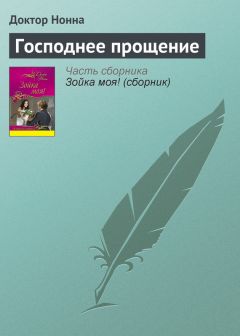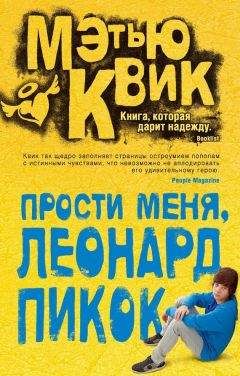Stuart Kaminsky - The Dog Who Bit a Policeman
Lydia had violated all these rules and several others within hours of moving in.
Very close to the top of Lydia Tkach’s list was Porfiry Petrovich Rostnikov, who was to be hounded into getting her son a safe office job in Petrovka or State Security or the Ministry of the Interior or anywhere else.
“Good morning, Lydia Tkach,” said Rostnikov, deciding that with his new position he could probably have someone screen his calls. It would keep Lydia at bay but it would mean that someone else, possibly Pankov, would know everyone who called him.
Pankov and the Yak probably knew anyway, however, so screening might. .
“All right then, good morning,” Lydia said impatiently. “You promised.”
“I did not,” Rostnikov said loudly, knowing his caller was not wearing her hearing device. “I said I would talk to Sasha. I talked to him. I told you that. He does not want to sit in an office, at a desk. He says it would drive him mad. He is a young man. He doesn’t want to sit at a desk preparing reports and answering phones for the next thirty years.”
“He would be alive those thirty years,” she said. “You have the power to have it done even if he doesn’t want it.”
“Again, I have told you that perhaps I could get him reassigned over his objections. He would blame you. He would blame me. He would hate going to work each morning. He has enough things to be depressed about without adding that.”
“What has he to be depressed about?” asked Lydia.
“Beyond the fact that he is Russian and part of our proud heritage of depression,” said Rostnikov, “I can’t think of a thing.”
“You are being ironic,” she said. “I hate ironic. I have trouble understanding it. I have one son. If he is hurt or dies, it will be on your head. I’ll never let you forget it.”
“I am confident of that, Lydia Tkach.”
“Talk to him again,” she said. “Persuade him.”
“I’ll talk to him again,” said Rostnikov, who would indeed do so, though he would not try to persuade Sasha to his mother’s cause.
If Sasha could control his moods and depressions, he still had a promising future, promotion would come quickly. But time was running out on Sasha. If he did not come around in the next year or two, he would be a lower-level investigator for the rest of his career. It could be worse. He might not have a career.
“Report to me,” she said and hung up.
“Yes, Comrade Stalin,” he said to the dead phone, and he too hung up.
The moment the phone hit the cradle, it rang.
“Rostnikov,” he said.
“Pushkin Square in front of the statue in thirty minutes,” said a heavily accented voice which Rostnikov thought was probably Tatar. “Not a second later. Wait there.”
The man hung up, and Rostnikov, who desperately wanted to finish the last four pages of his dearly purchased copy of Ed McBain’s Sadie When She Died, put on his artificial leg, adjusted it, and rose with the aid of his desk. He checked his watch and cal-culated that he would have ample time to get to Pushkin Square by metro. He could, in his new capacity, he reminded himself, requi-sition a car and finish his book in the backseat, but it would take time to get an approval signed by the Yak and a car waiting downstairs.
No, the metro would be faster.
In fact, Rostnikov made it in less than twenty minutes. He emerged from the Pushkin Square metro station in the old Izvestia Building, looked across the Boulevard Ring and down Gorky Street. He surveyed the Square and glanced at the Rossia Cinema.
The dark clouds rumbled but it was not yet raining. This had been going on for several days, and Rostnikov imagined that the skies were waiting for something before they began to cry. There was plenty to cry about already, but using that logic it should be raining constantly throughout Russia.
The square was crowded with people hurrying by but there was no one standing in front of Pushkin, who looked down at the policeman in front of him. Pushkin’s hat was in his left hand at his side and the poet’s right hand rested inside his vest in a Napoleonic pose popular in the 1880s when the statue was completed.
Occasionally, a visitor or a Muscovite would place a flower or two at the foot of the statue, but it was nothing like the wreaths that used to be found here. It was said that when Dostoevsky was presented with a wreath of flowers for his achievements, he carried the heavy wreath and placed it at the foot of this very statue.
Cars bustled, honked, and speeded past the square. People hurried by. Behind Porfiry Petrovich and over the sound of the traffic, a man spoke. Rostnikov did not turn.
“ ‘How oft in grief, from thee long parted
Throughout my vagrant destiny
Moscow my thoughts have turned to thee.’ ”
Rostnikov continued with:
“ ‘Moscow. . what thoughts in each true-hearted Russian come flooding at that word.
How deep an echo there is heard.’ ”
Rostnikov turned to face the dark young man in black slacks and a black zipper jacket. The young man was handsome and slender.
He looked up at Pushkin.
“He wrote that a long time ago, when times were different,” said the young man.
“But you know the words,” said Rostnikov.
“Once I believed them. Once I wanted to be a poet. But there is no market for poets.”
“There never has been,” said Rostnikov, “yet they strive, survive, and breed. Perhaps they are born with a deviant gene.”
“Perhaps,” said the young man. “When we get in the car, you will be searched. If you are wearing a listening device or recorder, we will find it. If you are carrying a weapon, it will be taken, you will be asked to get out, and we will be gone.”
“I carry no weapon. I carry no electronic or recording device,”
said Rostnikov.
The man nodded, looked around, lifted his right hand to his head as if to smooth back his hair. No more than five seconds later, a modest black Zil pulled up, stopping traffic behind it. The windows of the car were tinted. The young man led the way to the car and opened the back door. Rostnikov slipped in awkwardly, pulling in his prosthetic leg a fraction of a second before the young man closed the door.
The car started. The young man remained behind on the street.
At Rostnikov’s left was a pale, thin, young, and quite ugly man with large teeth and a matching nose. The man wore a black zipper jacket exactly like the one worn by the man Rostnikov had spoken to moments earlier.
The driver didn’t turn around. All that Rostnikov could see of him was his recently cut dark hair and his bull neck.
The thin young man said nothing and showed no emotion as he patted Rostnikov down, checking his wallet and even the paperback novel in the inspector’s pocket. He went so far as to examine Porfiry Petrovich’s artificial leg for secret compartments or listening devices. Satisfied, the ugly man reached over and touched the shoulder of the driver, who turned right at the next corner.
Halfway down the narrow street the car stopped and the ugly man reached over to open Rostnikov’s door. Rostnikov obliged by stepping out, which, given his leg, took a bit of time.
As soon as he had cleared the door, it closed and Porfiry Petrovich found himself on an empty street of houses and shops with boarded-up windows. There was another car, black, tinted windows, not large, parked directly across the street. The rear door to the car opened and Rostnikov proceeded to the car and climbed in.
He closed his door himself and looked over at the man at his side, as the car started and moved at a reasonable pace up the street.
“You wish to talk to me,” the man said.
He was about Rostnikov’s height but much lighter. He was also about Rostnikov’s age but looked much older. His hair was thin and straight. His skin, already dark, was weathered and wrinkled by the sun. The face, however, was dominated by a black patch that covered the man’s right eye. All these things Rostnikov had known about Casmir Chenko, Glahz, the Tatar.
“Valentin Lashkovich,” said Rostnikov, trying to find a comfortable position and keep his eyes on Chenko. “You know he is dead.”
“I know,” said Chenko.
“Do you also know who killed him?”
“The Chechin,” said Chenko.
“Shatalov?” asked Rostnikov.
“Shatalov,” said Chenko. “He uses no other name, so one of my men called him Irving. We all call him that now. Shatalov knows and it displeases him. We have reason to believe he is a Jew. So you see, Chief Inspector, we Tatars do have a sense of humor, perhaps not a profound one, but a sense of humor nonetheless. And we are not stupid, or foul-smelling, or particularly sullen.”
“I never thought you were,” said Rostnikov.
Chenko, who had sat forward when he spoke, now leaned back.
“What do you want, policeman?”
“You are going to kill one of Shatalov’s men in retaliation,” said Rostnikov as the car drove past the old Tretyakov Art Gallery.
“And you don’t want me to do it?” said Chenko.
“That is right,” said Rostnikov.
“This began when Shatalov killed one of my men two months ago,” said Chenko calmly. “Shot him in a hotel sauna. You knew that?”
“I knew that,” said Rostnikov. “I mean I knew that one of your men was murdered. I do not know that Shatalov did it. I have some reason to believe that it may indeed be someone else.”
“Who else?” asked Chenko.
“Another Mafia that wants you two to kill each other off so they can move in on your territories when you are both weak,” said Rostnikov. “A lone man, perhaps a member of one of your organizations, who sees an opportunity for advancement if a war breaks out between you. Perhaps. .”
“You are groping for diamonds in the Siberian tundra,” said Chenko. “Shatalov did it.”
“And you did it back and he did it back. And now it will continue.”
“I have not yet answered his affront. If someone has killed one or more of his people, let him look to his own organization. For the last time, policeman, what do you want?”
“A meeting between you and Shatalov.”
“I do not think that a good idea,” said Chenko.
“All right then, a promise from you that there will be no violence, no retaliation for Laskovich’s murder, not till my office has time to investigate.”
“That might be possible,” said Chenko, “if no more of my people are attacked by the Chechins, though I see no good that can come from a one-sided truce.”
“I will try to arrange a truce with a time limit,” said Rostnikov.
“You want something in return. You would not have agreed to see me if you didn’t want something.”
“The body of Valentin Lashkovich,” said Chenko. “Tonight. To be delivered to this location.”
Chenko handed Rostnikov a card. It contained a name and address of a well-known mortuary known to be used by criminals at all levels. It was more than suspected that the mortuary did more than handle the internment of the publicly dead. A large number of people who had unfortunately displeased criminals had disappeared, supposedly into unmarked graves far outside the city. Dis-posing of the dead was now big business in Moscow.
“It shall be,” said Rostnikov. “I have your word?”
“Under the conditions and if the Chechin agrees to the same terms,” said Chenko. “You are going to meet with Shatalov?”
“Yes,” said Rostnikov.
Chenko opened a small zipper bag on the floor, took out a cell phone, dialed, and handed it to Rostnikov.
“A woman will answer,” said Chenko. “Tell her who you are. Tell her you have a message that must be delivered in person.”
Chenko handed the phone to Rostnikov. A woman’s voice said,
“Yes?” Rostnikov said what Chenko had told him to say and gave his office phone number. “I do not know any Shatalov,” the woman said.
“The message remains,” said Rostnikov.
Chenko reached over and took the phone from Porfiry Petrovich. “Natalya, daughter of a snake,” he said. “Tell Irving I will hang his head over my desk.”
Chenko pressed a button on the phone and put it back in the zipper bag.
“You think that will make it more likely that Shatalov will call me?” asked Rostnikov.
“It will make your request undeniable,” said Chenko. “Shatalov will be angry. Shatalov will want to save face. Shatalov will call you, meet with you, and give you a message for me. It will be a warning.
I will laugh at it.”
Rostnikov could not imagine Chenko laughing.
“There is no more to discuss,” said Chenko.
“I may wish to talk to you again when more is known,” said Rostnikov.
“If there is something to discuss,” said Chenko, “you know how to get a message to me. Final question, policeman.”
“Ask.”
“Why do you want us to stop killing each other? Why do you want to prevent a war?”
“Innocent people die in wars,” said Rostnikov. “Besides, it is an assignment that has been given to me by my superiors.”
Chenko made a sound. He may have been clearing his throat. It may have been his version of a laugh.
“Let me tell you something, Russian policeman,” said Chenko, cocking his head to one side to see Rostnikov. “We care nothing for your wars. We are Tatars. Until 1552 we were an independent state, and then Ivan the Terrible conquered us. In Kazan, the town where I was born, on a tiny island where the Volga and Kamra rivers meet, is a white pavilion built one hundred years ago in tribute to Ivan the Terrible. My mission in life is to return to Kazan and blow up that pavilion. Meanwhile, the self-declared Republic of Tatarstan flies only the red and green flag of ancient Tataria, and we have recently withheld tax payments from your corrupt government. When you people attacked Chechnya, Shatalov sat back in Moscow and let his people be murdered and crushed. If Russia attacks Tataria, we will wage a guerrilla war that will put Shatalov and the Irish Republican Army to shame.”
The car stopped. Chenko folded his arms and looked forward with his remaining eye. “If you give me Lashkovich’s body and the Chechin agrees, you will have your short truce. If you promise the prompt turning over of any of our people killed in battle in these streets, I will meet with Shatalov, but expect little from such a meeting.”
Rostnikov got out. The door closed and the car drove off. Rostnikov was, once again, standing before the statue of Pushkin.
Emil Karpo stood looking at the panorama before him-the Kremlin in the distance across from the river, the tarnished onion-like balls atop the churches along the river, the streets jammed with cars. The day was overcast, threatening. There was also the ever-present haze of pollution that seemed to grow worse by the week.
What interested Karpo most about the view through the huge window, however, was the river. Getting the nude body of Valentin Lashkovich from the swimming pool behind Karpo to the river would have been a difficult task. Getting the body out of the hotel would have been more difficult. Yet Karpo was certain this was the place where the Mafia enforcer had been murdered.




